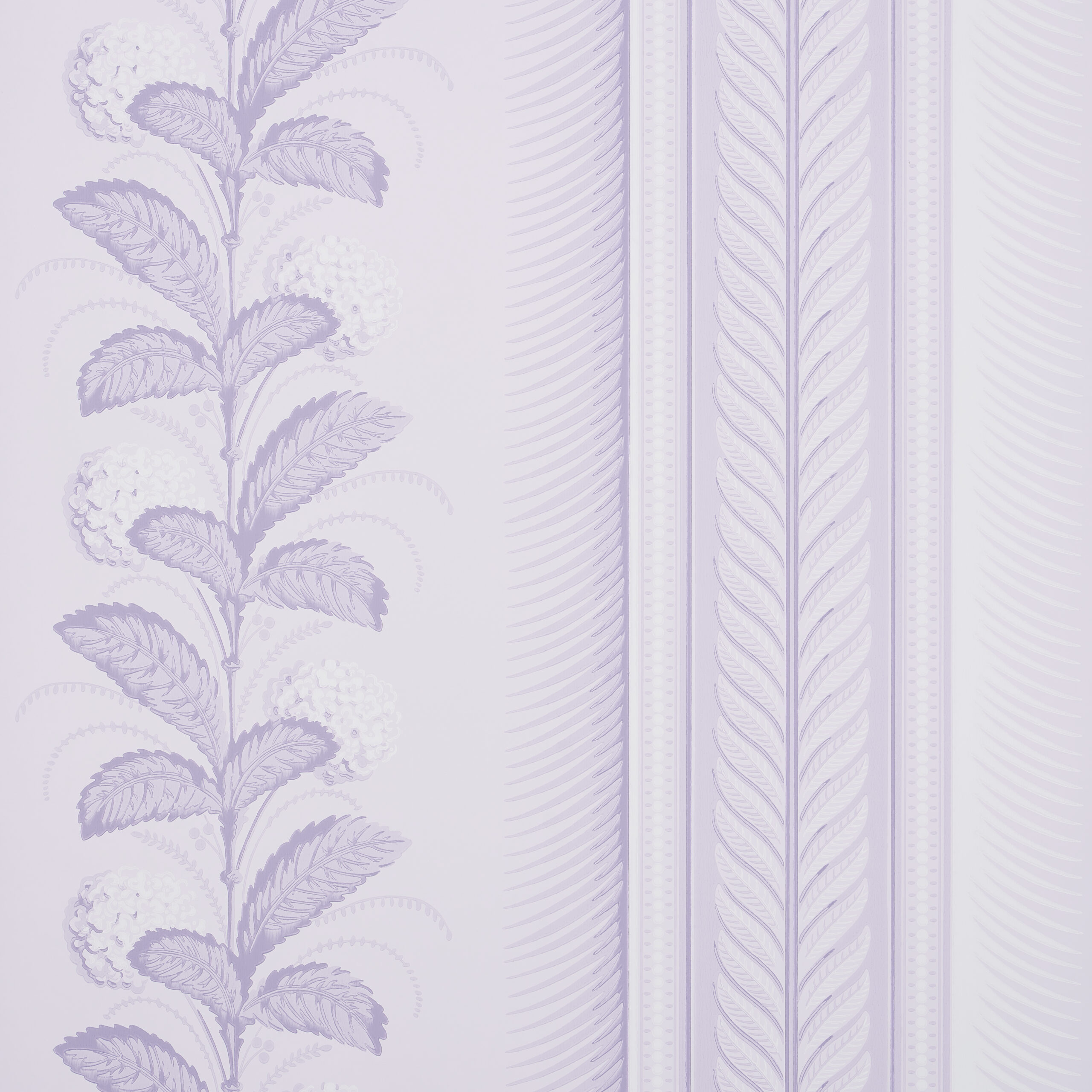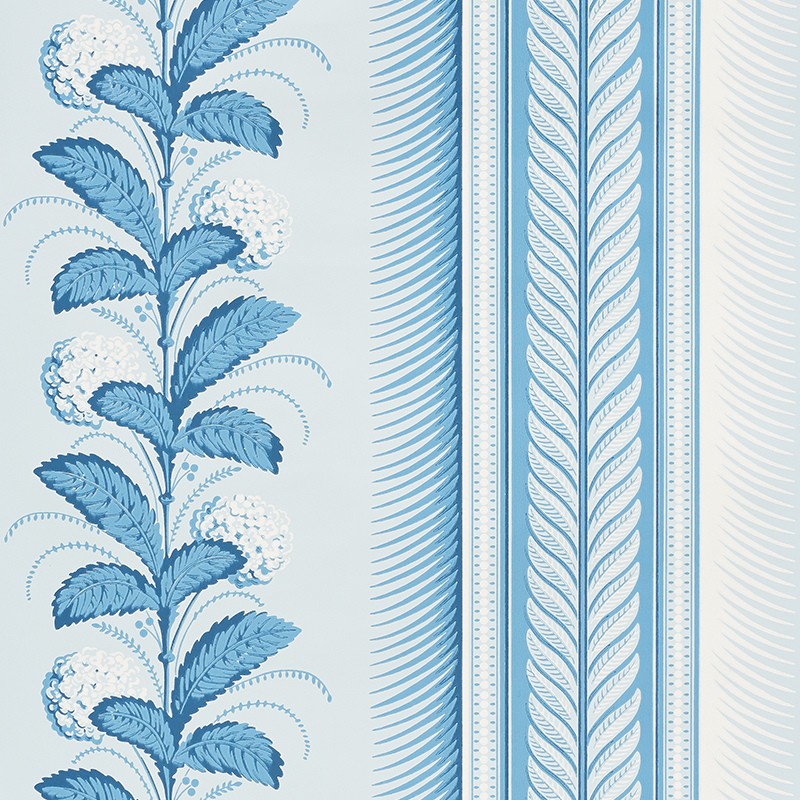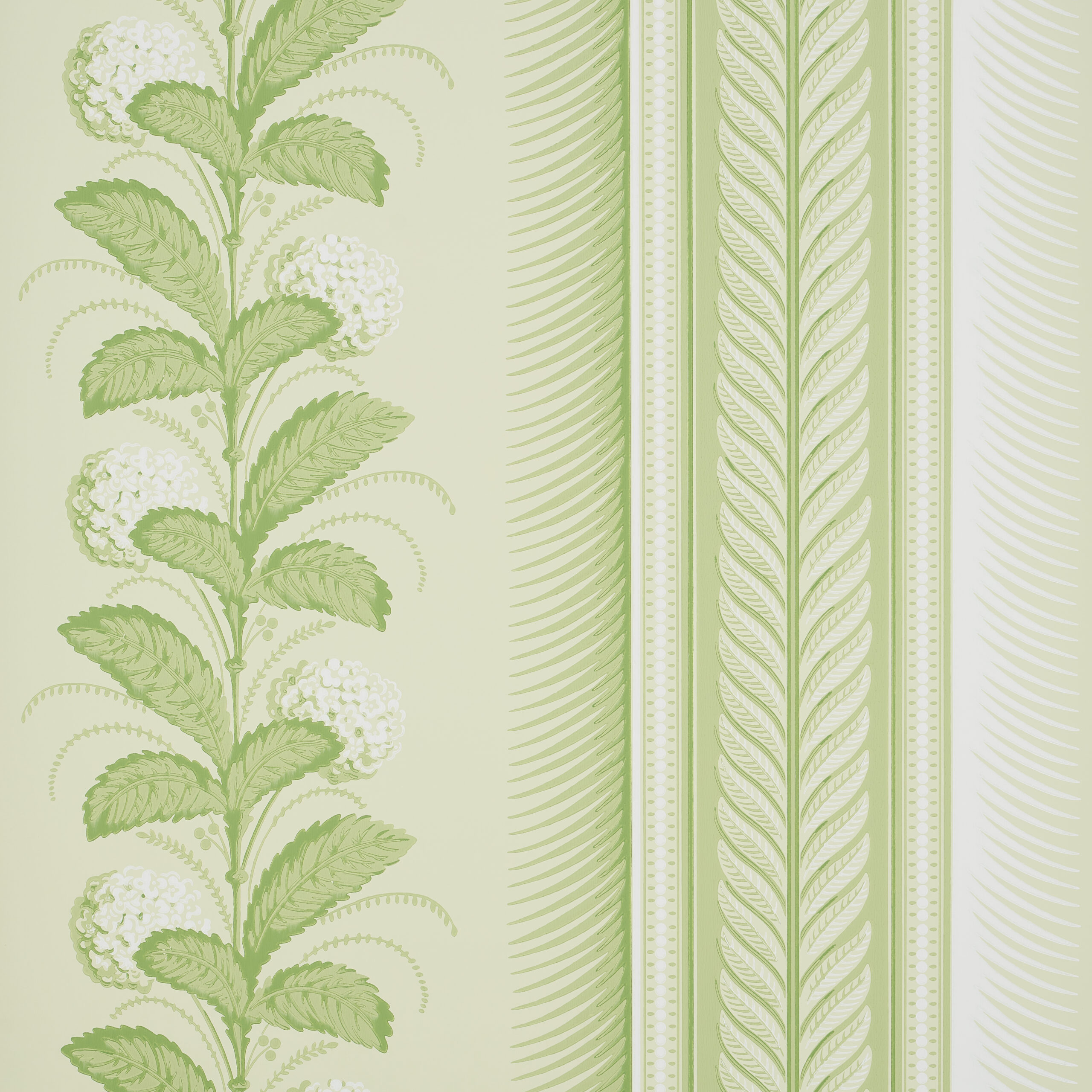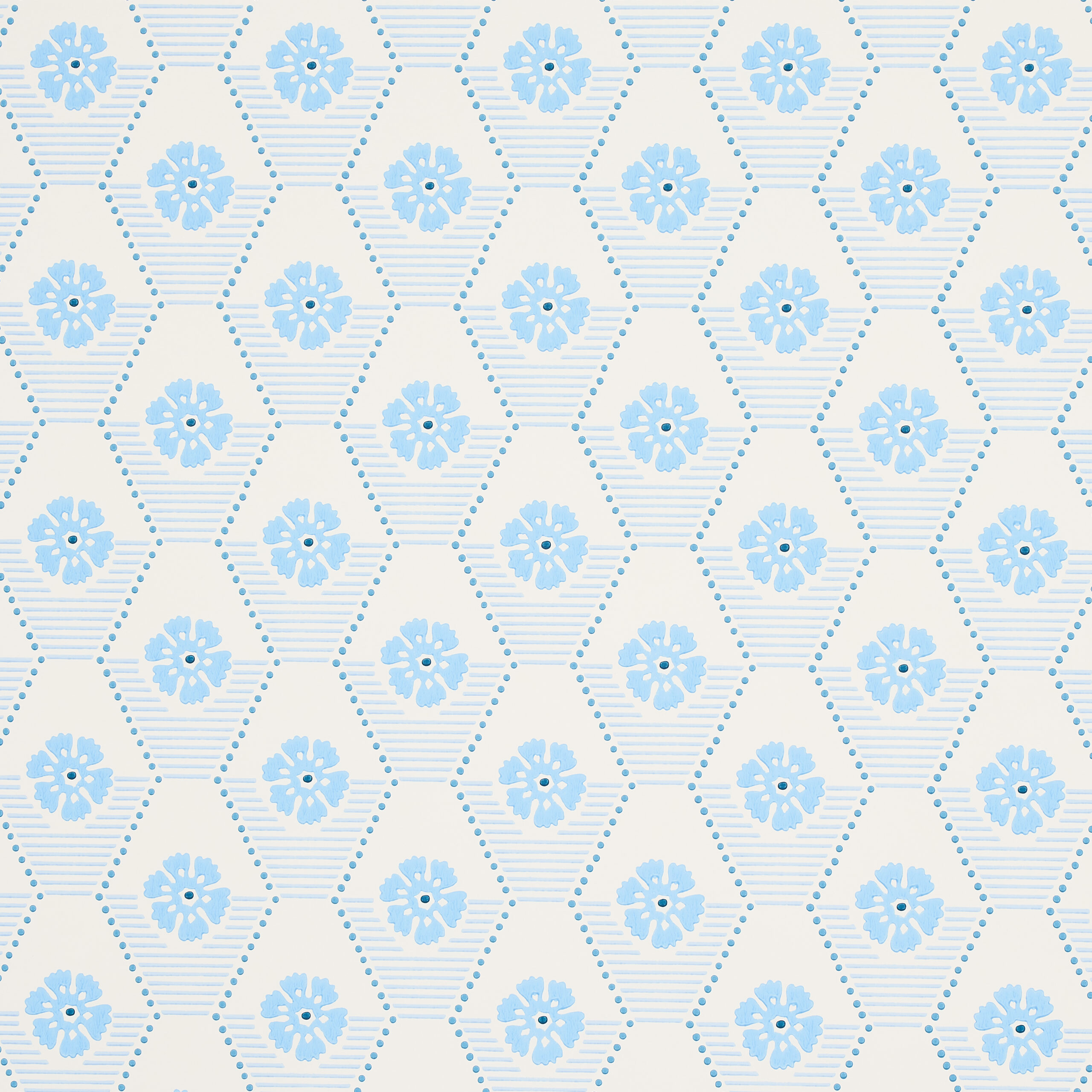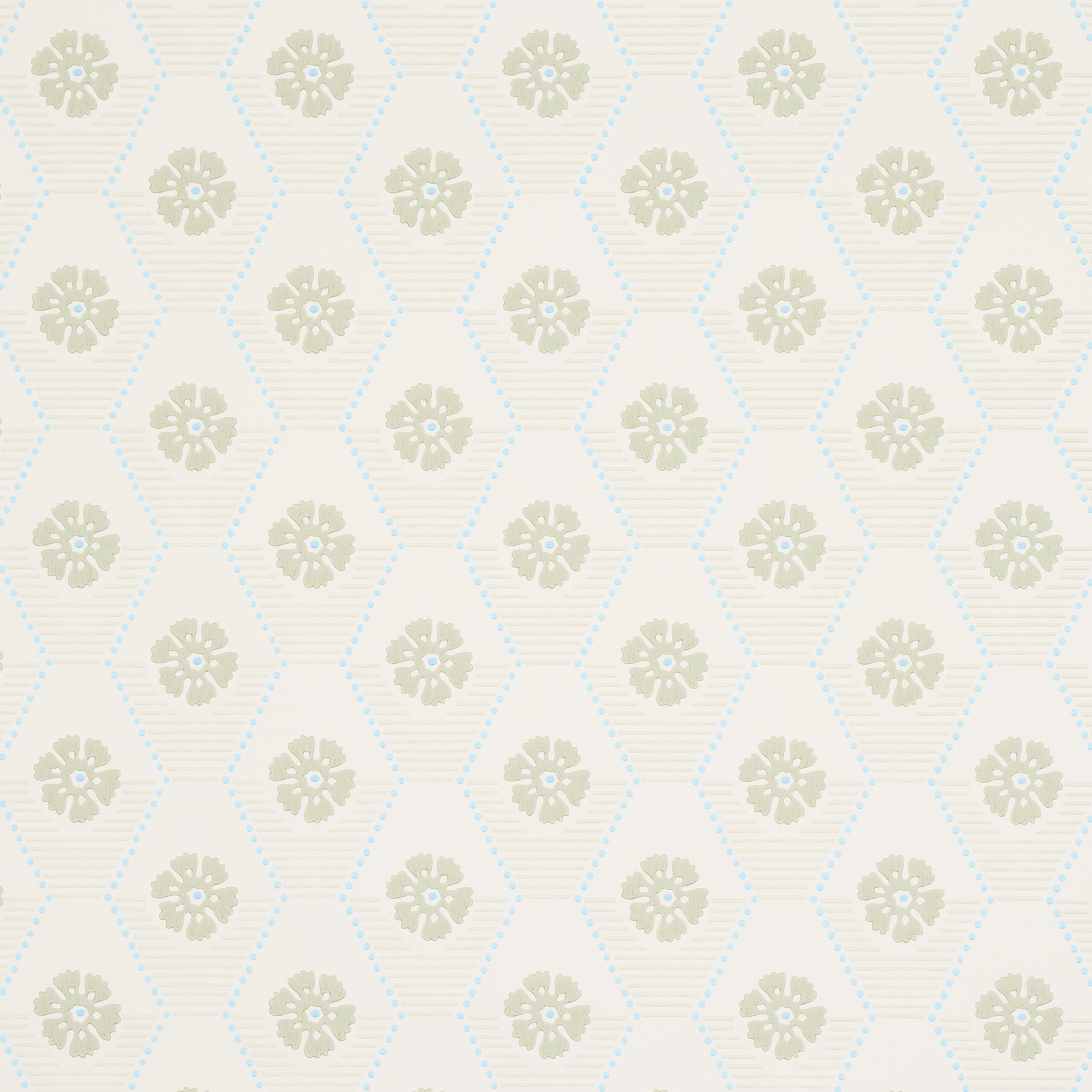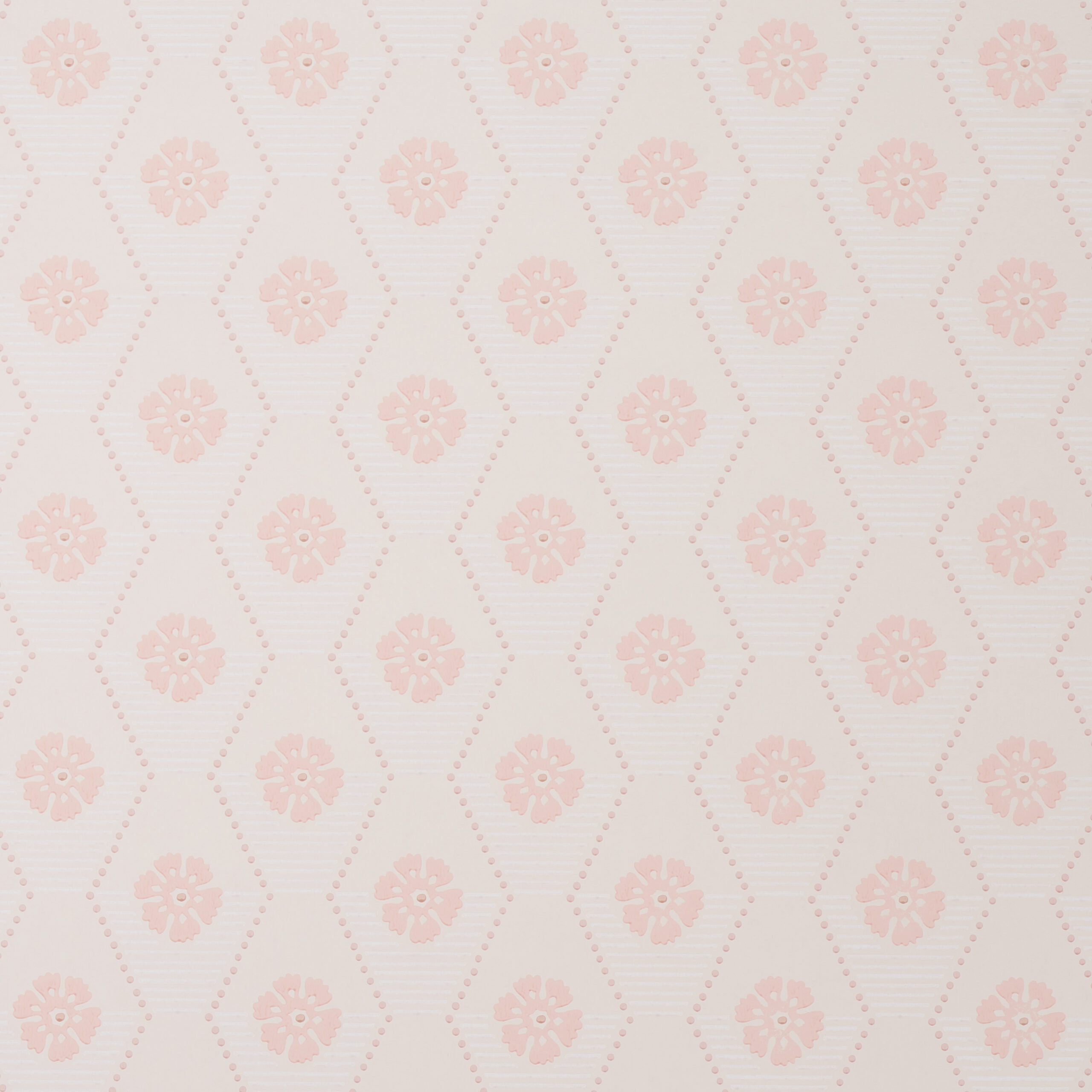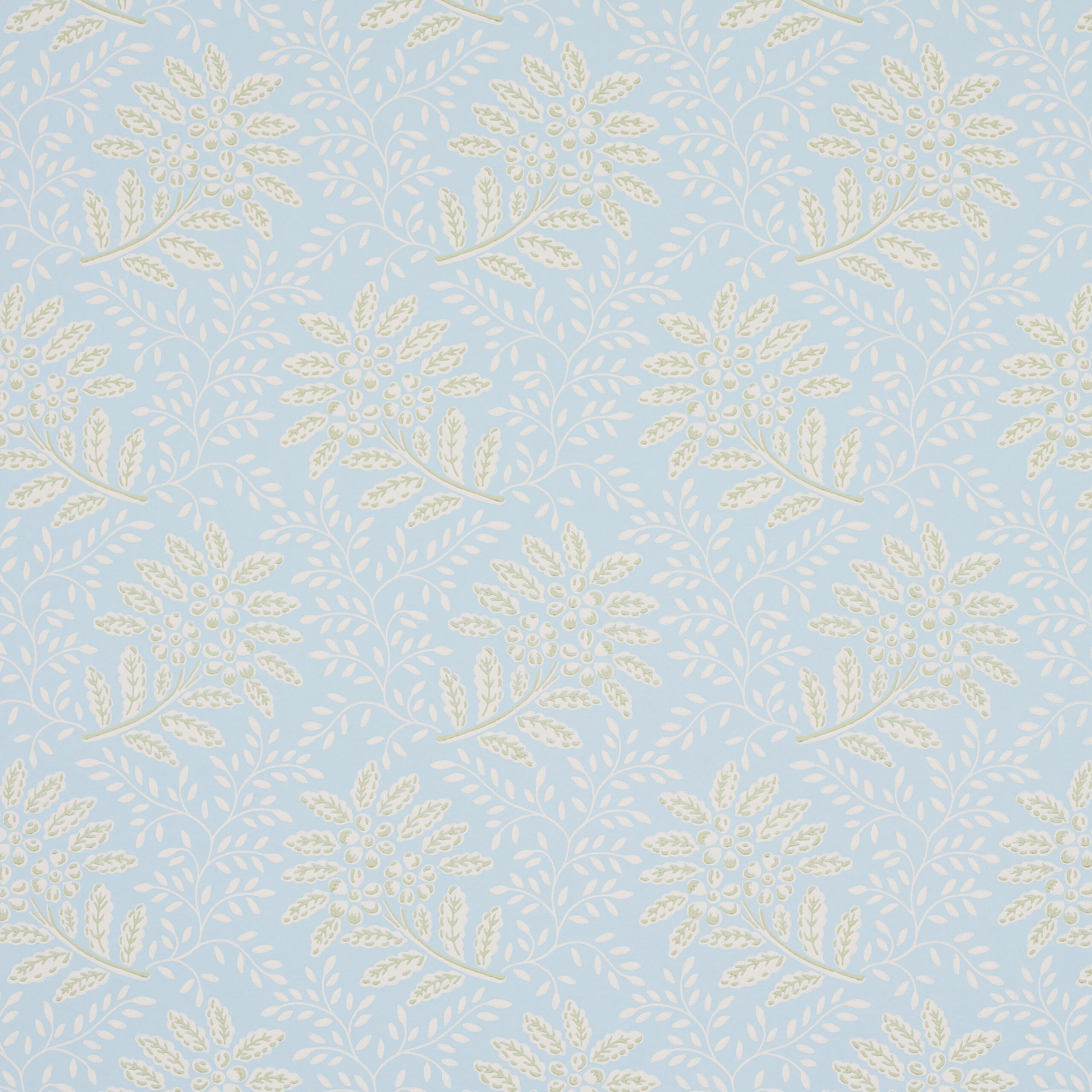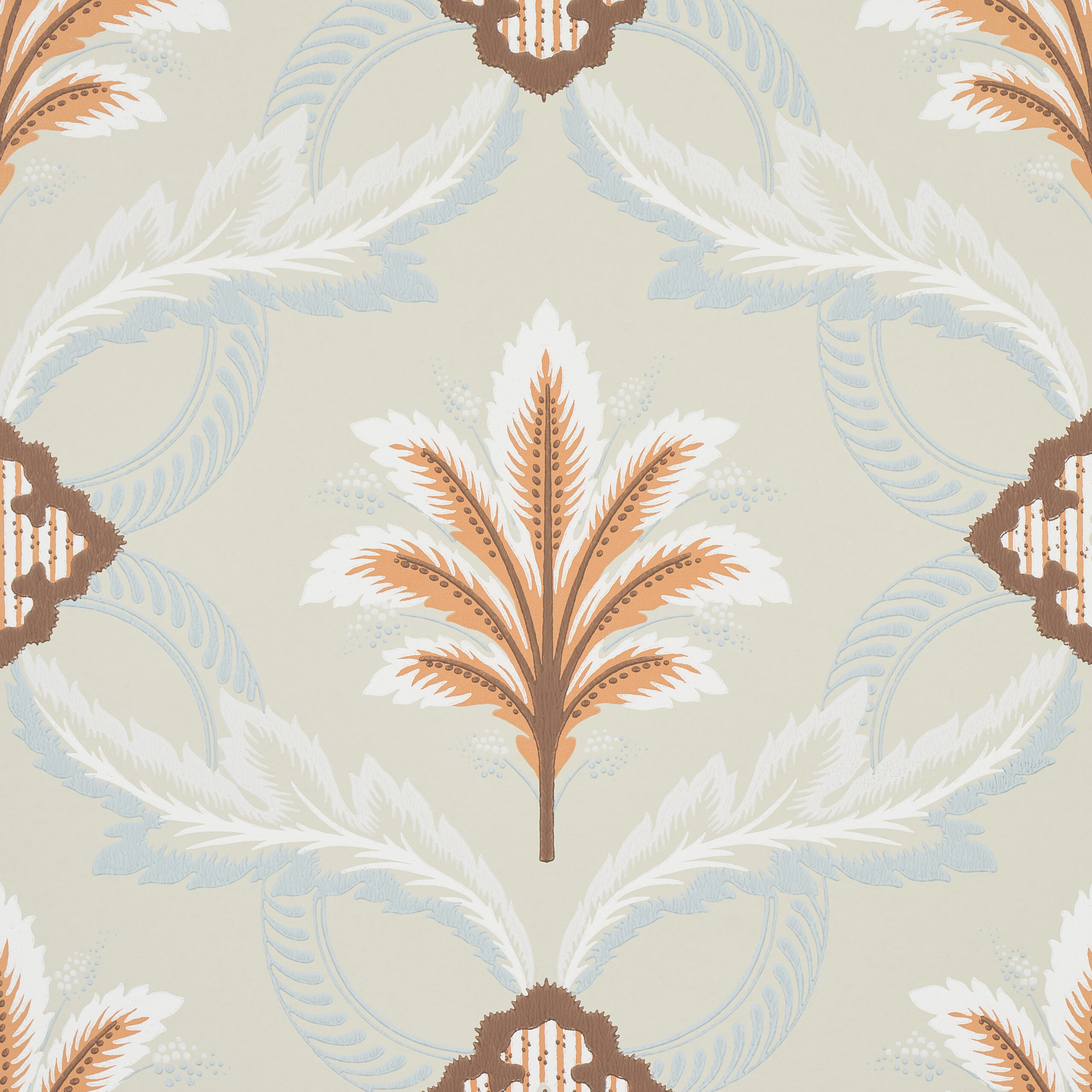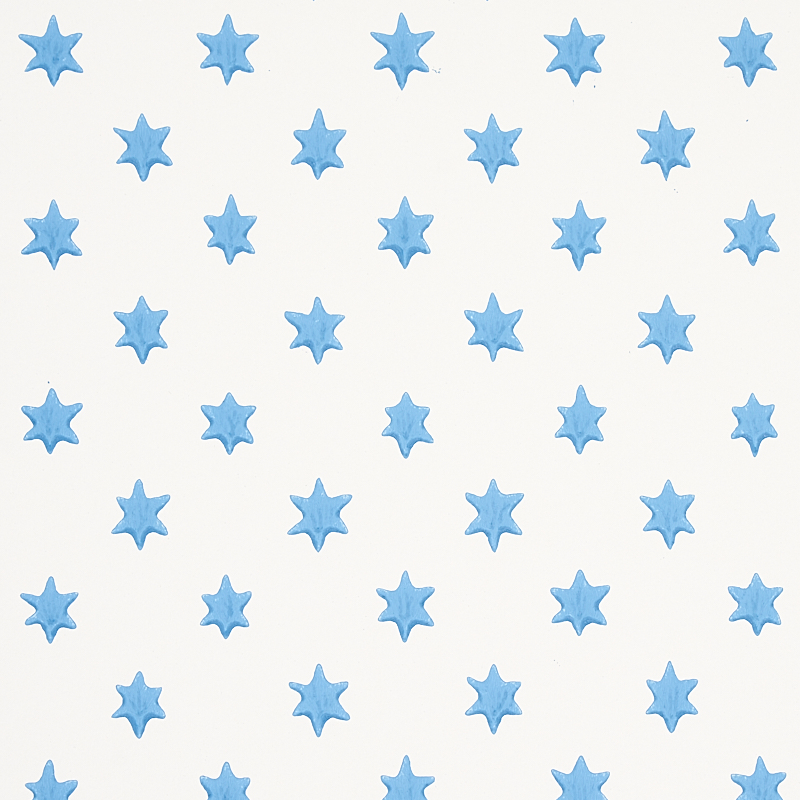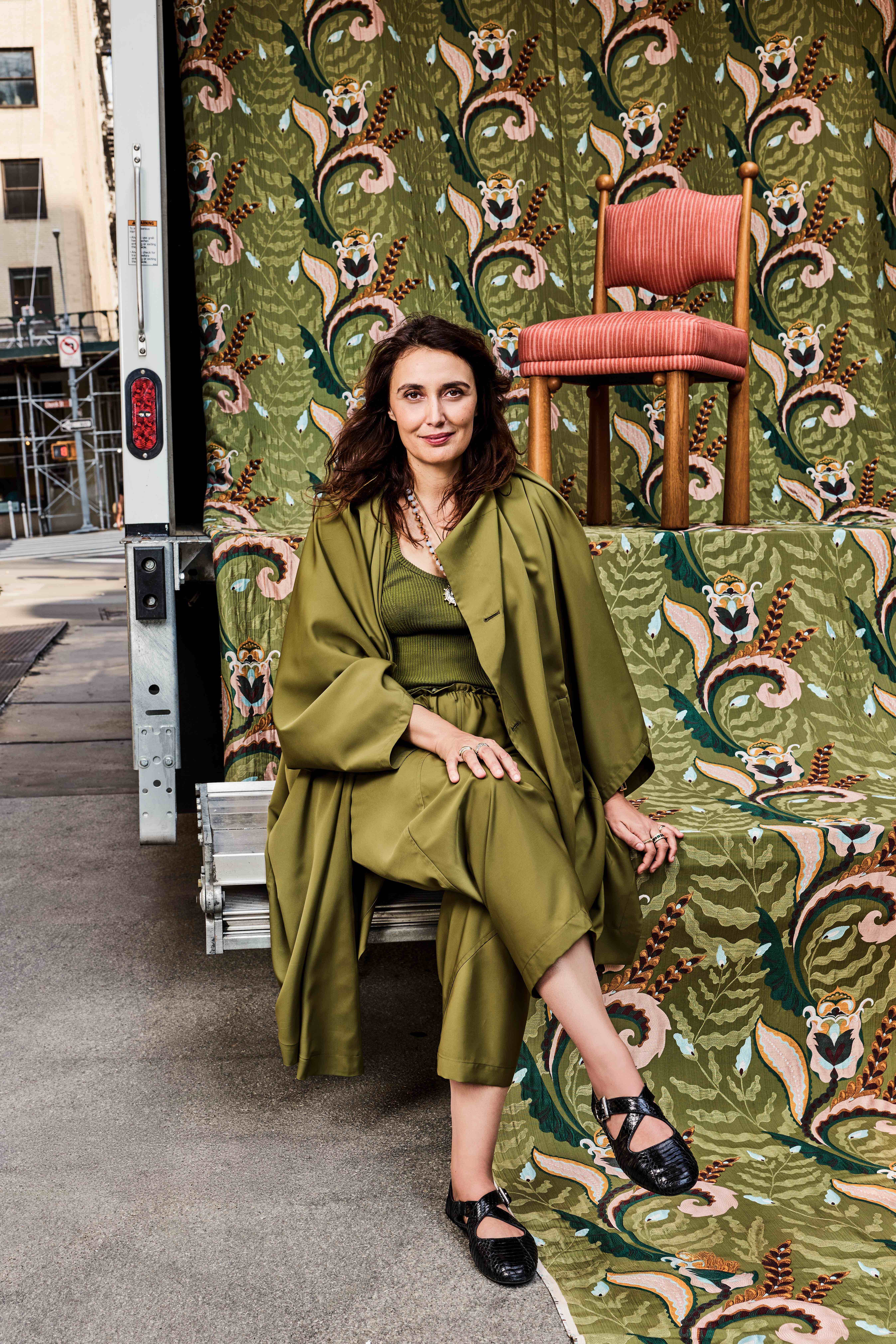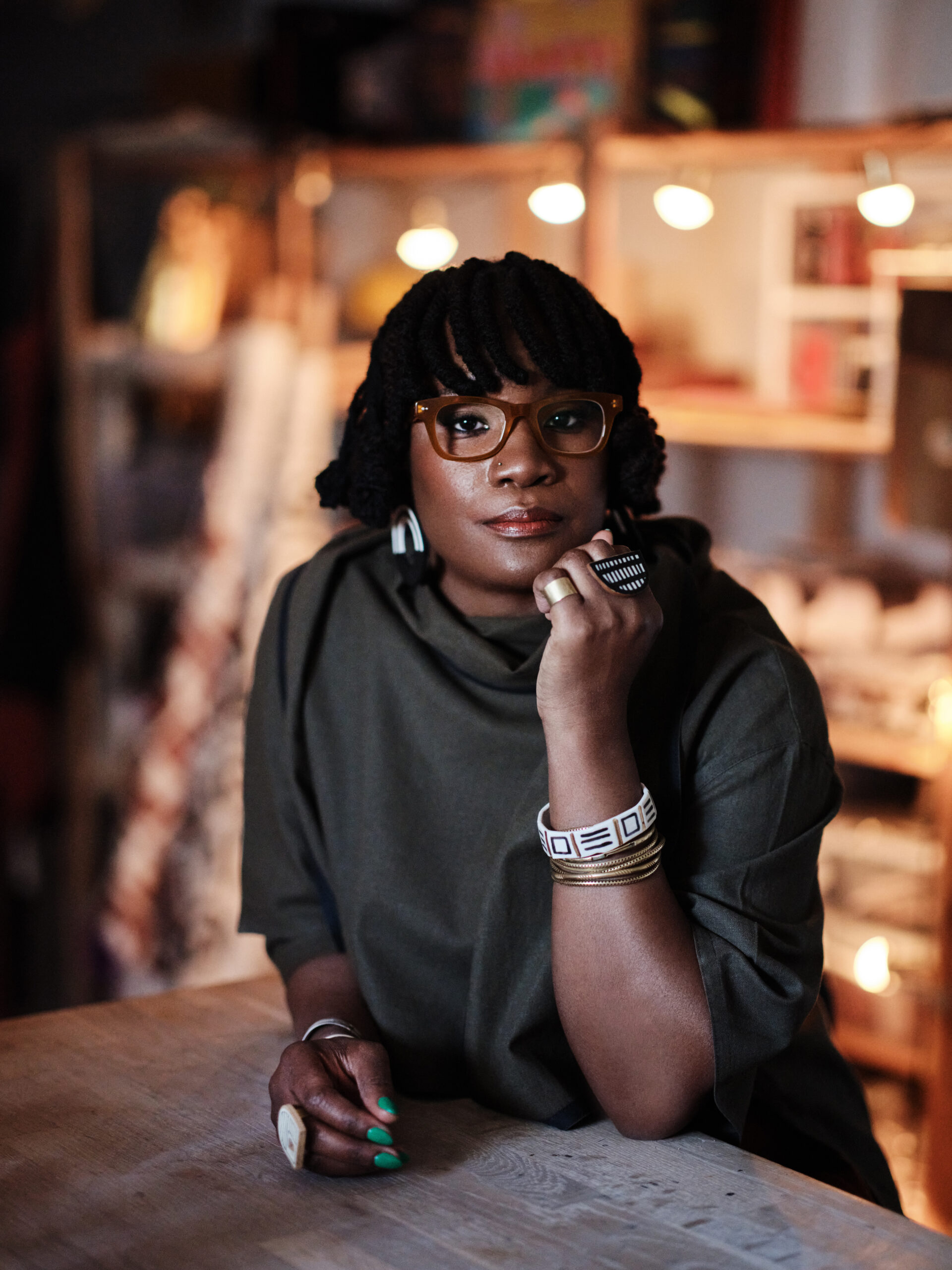Born in 1897, Hobe Erwin built a successful career as an interior designer as one-half of the New York–based firm Jones and Erwin. But it was his brief stint as a Hollywood set decorator—during which he created some of the most transporting interiors in the history of cinema—that left an indelible impression. Read on to discover the rich history and inspiration behind Erwin’s classic wallpaper designs for Schumacher.
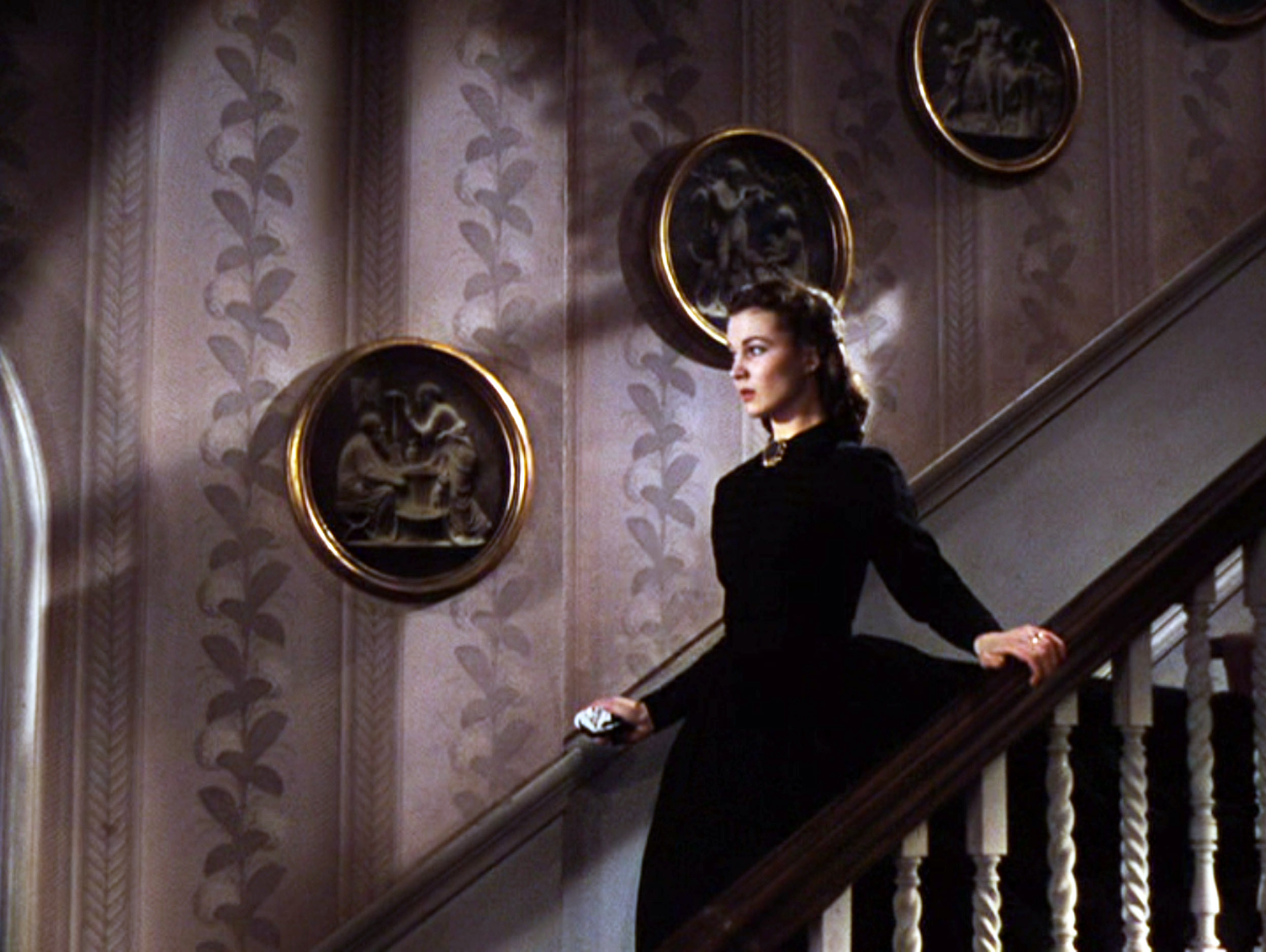
In a scene from the 1939 film Gone With the Wind, a stairway dressed in Hobe Erwin’s Hydrangea Drape wallpaper serves as an elegant backdrop for Vivien Leigh’s Scarlett O’Hara.
Hollywood Calling
As a professional decorator based in Manhattan, Hobe Erwin was by no means a fixture of the Hollywood studio system. In fact, his only connection to the film business was his friendship with director George Cukor.
The relationship would prove to be a fruitful one. Beginning in 1933, Cukor called on Erwin to serve as set designer (and sometimes art director) for a series of now-iconic films. For Little Women, starring Katherine Hepburn as Jo, Erwin modeled the interiors of the March family residence on Louisa May Alcott’s Massachusetts home. For Dinner at Eight, Erwin dreamed up lavish Art Deco interiors—full of swaths of sumptuous white upholstery and miles of fringe—that were as glamorous as the film’s star, Jean Harlow.
In 1939, Erwin collaborated with Cukor on one final film: Gone With the Wind. Seeking to recreate the look and feel of Civil War-era Georgia, Erwin conducted extensive research of grand American homes from the 18th and 19th centuries. He and Cukor even traveled together to Atlanta to scout locations, receiving a tour of the city from Gone With the Wind author Margaret Mitchell herself.
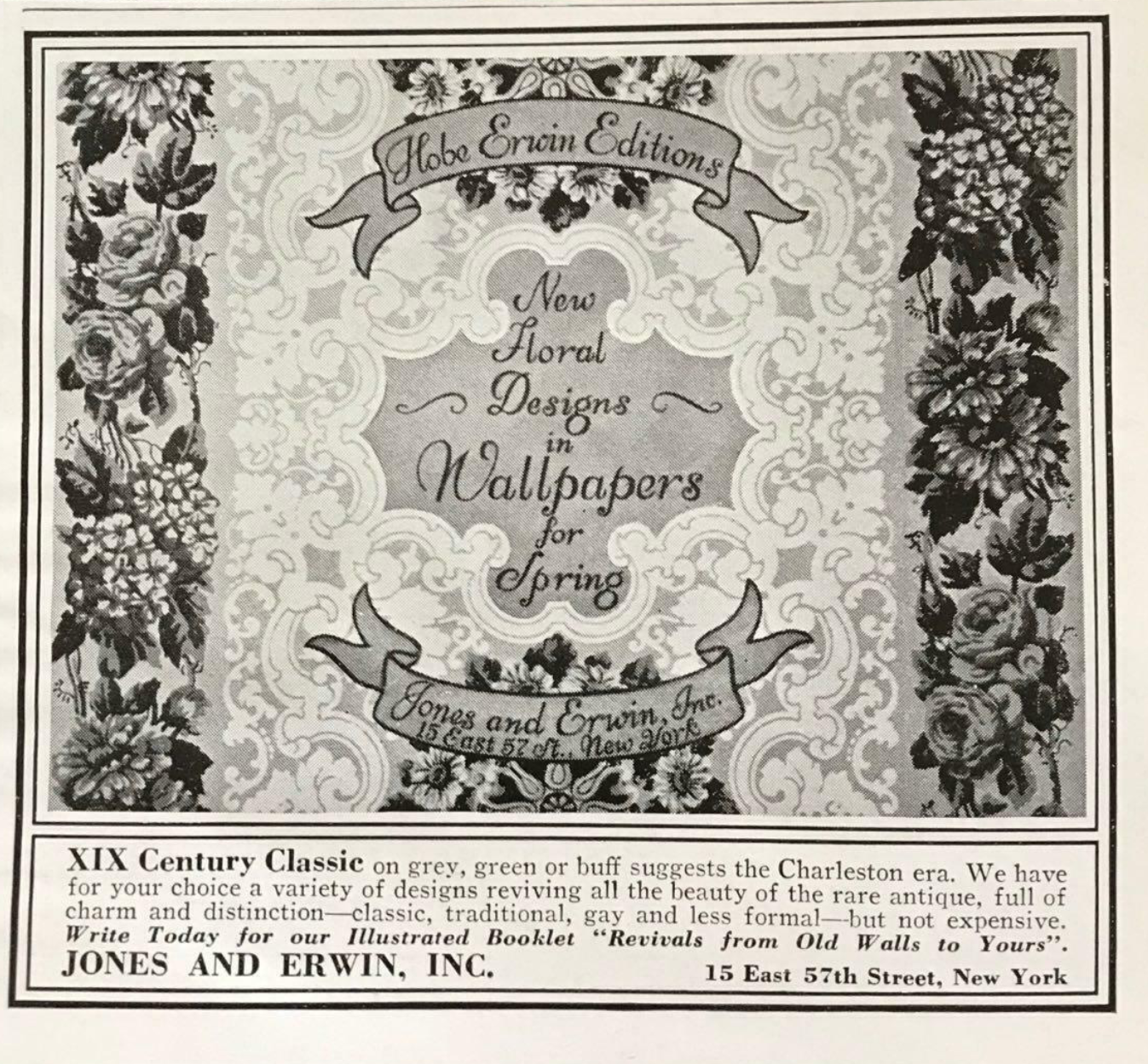
A 1939 advertisement for Erwin’s first wallpaper line, Hobe Erwin Editions, evoking “the Charleston era.”
Erwin’s meticulously researched sets often included wallpaper. When he couldn’t find existing patterns that fit his vision for a film, he created his own, drawing on archival textiles and wallcoverings for inspiration. These scene-stealing designs became the basis of Erwin’s first wallpaper line, released by Jones and Erwin as “Hobe Erwin Editions.”
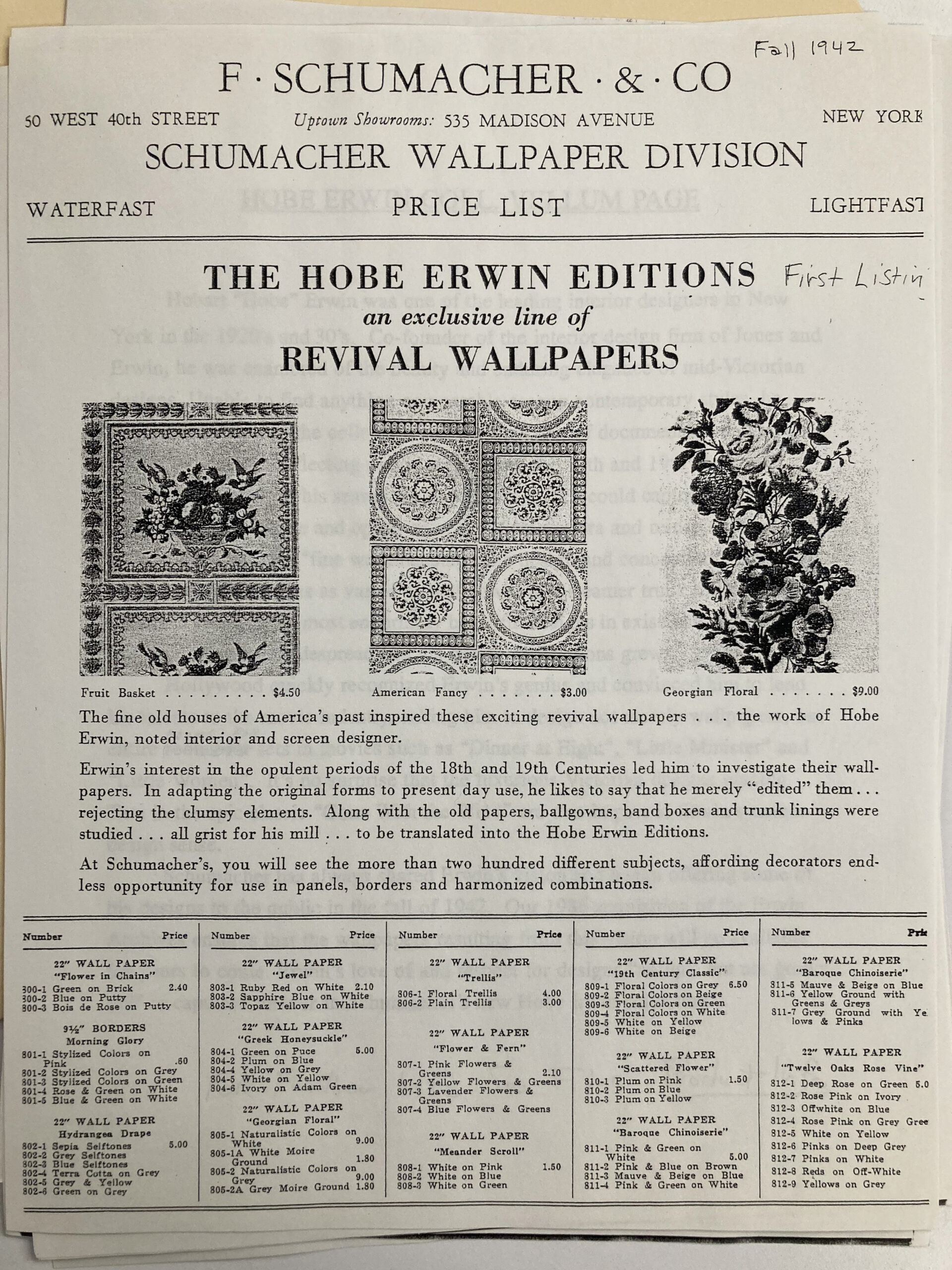
A 1942 advertisement for Revival Wallpapers, a collaboration between Hobe Erwin and Schumacher.
Partners in Pattern
In 1942, Erwin partnered with Schumacher to launch a line of “revival” wallpapers. Informed by Erwin’s studies of historic American homes, the collection offered a fresh interpretation of classic 18th- and 19th-century patterns.
Today, Schumacher produces an updated collection of some of Erwin’s most exquisite neoclassical designs, including Hive Bloom, a versatile print that melds geometric and floral motifs; Front Waltz, a timeless trellis pattern rich with romantic beauty; and new colorways of the Scarlett O’Hara-approved Hydrangea Drape.
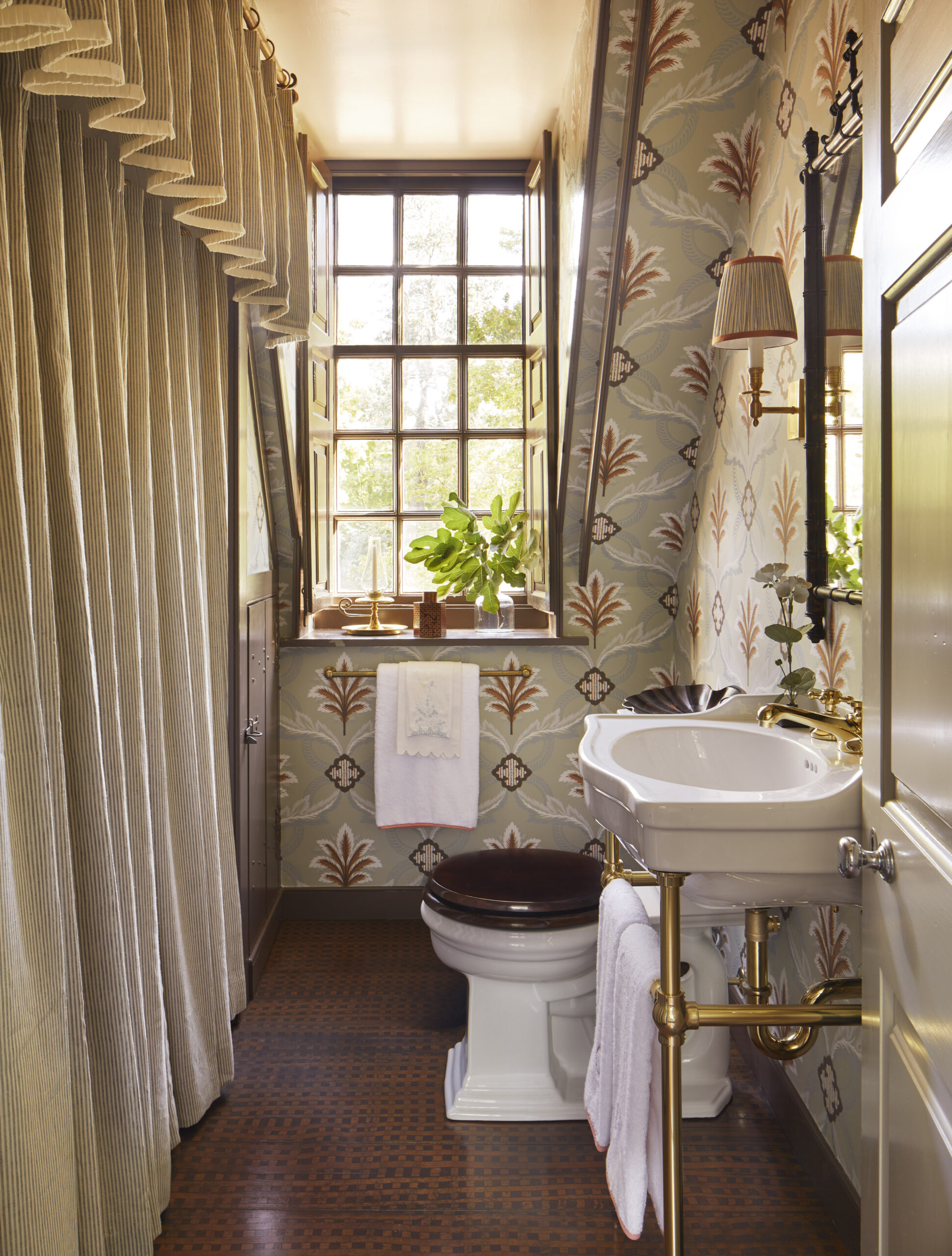
Schumacher’s Front Waltz, a stylized trellis wallpaper based on an original Hobe Erwin pattern, lends historic charm to a bathroom by Birmingham-based designer Heather Chadduck Hillegas at the newly restored Nelson-Galt House in Colonial Williamsburg.
Annie Schlechter
